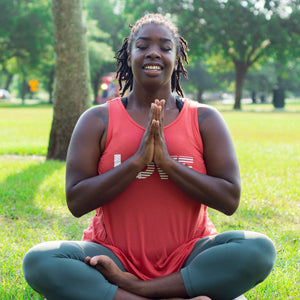March (no)Madness Self-Care: Time Change & Spring Transition
As the seasons transition and the days grow longer, we find ourselves facing that annual ritual: the shift to daylight saving time. While gaining more sunlight can be invigorating, losing an hour of sleep can throw off our internal clocks and leave us feeling groggy and disoriented. However, with a little self-care and mindfulness, we can ease the transition and make the most of the longer days ahead. Here are some tips for self-care during the time change:
1. Prioritize Sleep:
Losing an hour of sleep can disrupt our sleep patterns and leave us feeling tired and sluggish. In the days leading up to the time change, try to gradually adjust your sleep schedule by going to bed and waking up 15 minutes earlier each day. This can help ease the transition and minimize the impact on your sleep quality.
2. Practice Mindfulness:
Transitioning to daylight saving time can disrupt our daily routines and leave us feeling out of sync. Take some time to practice mindfulness and be present in the moment. Whether it's through meditation, deep breathing exercises, or simply taking a walk outside, mindfulness can help reduce stress and promote a sense of calm during times of change.
3. Get Moving:
Exercise is a powerful tool for managing stress and boosting mood, so make it a priority during the time change. Whether it's a brisk walk, a yoga class, or a workout at the gym, getting moving can help increase energy levels and improve overall well-being.
4. Soak Up the Sun:
With the longer days ahead, take advantage of the extra daylight by spending time outdoors. Exposure to natural light can help regulate your body's internal clock and improve mood and energy levels. Soak up the sun by going for a walk, gardening, or simply sitting outside with a good book.
5. Practice Self-Care:
During times of transition, it's important to prioritize self-care and nourish your mind, body, and soul. Take time for activities that bring you joy and relaxation, whether it's reading a book, taking a hot bath, or indulging in your favorite hobby. Remember to listen to your body and give yourself permission to rest and recharge as needed.
6. Be Patient with Yourself:
Adjusting to the time change can take time, so be patient with yourself and give yourself grace as you navigate this transition. It's normal to feel tired or out of sorts in the days following the time change, but with a little self-care and self-compassion, you can ease the transition and embrace the new season ahead.
As we spring forward into daylight saving time, remember to prioritize self-care and take steps to support your well-being during this transition. By prioritizing sleep, practicing mindfulness, staying active, soaking up the sun, and practicing self-care, you can navigate the time change with ease and embrace the longer days ahead.
1. Prioritize Sleep:
Losing an hour of sleep can disrupt our sleep patterns and leave us feeling tired and sluggish. In the days leading up to the time change, try to gradually adjust your sleep schedule by going to bed and waking up 15 minutes earlier each day. This can help ease the transition and minimize the impact on your sleep quality.
2. Practice Mindfulness:
Transitioning to daylight saving time can disrupt our daily routines and leave us feeling out of sync. Take some time to practice mindfulness and be present in the moment. Whether it's through meditation, deep breathing exercises, or simply taking a walk outside, mindfulness can help reduce stress and promote a sense of calm during times of change.
3. Get Moving:
Exercise is a powerful tool for managing stress and boosting mood, so make it a priority during the time change. Whether it's a brisk walk, a yoga class, or a workout at the gym, getting moving can help increase energy levels and improve overall well-being.
4. Soak Up the Sun:
With the longer days ahead, take advantage of the extra daylight by spending time outdoors. Exposure to natural light can help regulate your body's internal clock and improve mood and energy levels. Soak up the sun by going for a walk, gardening, or simply sitting outside with a good book.
5. Practice Self-Care:
During times of transition, it's important to prioritize self-care and nourish your mind, body, and soul. Take time for activities that bring you joy and relaxation, whether it's reading a book, taking a hot bath, or indulging in your favorite hobby. Remember to listen to your body and give yourself permission to rest and recharge as needed.
6. Be Patient with Yourself:
Adjusting to the time change can take time, so be patient with yourself and give yourself grace as you navigate this transition. It's normal to feel tired or out of sorts in the days following the time change, but with a little self-care and self-compassion, you can ease the transition and embrace the new season ahead.
As we spring forward into daylight saving time, remember to prioritize self-care and take steps to support your well-being during this transition. By prioritizing sleep, practicing mindfulness, staying active, soaking up the sun, and practicing self-care, you can navigate the time change with ease and embrace the longer days ahead.












